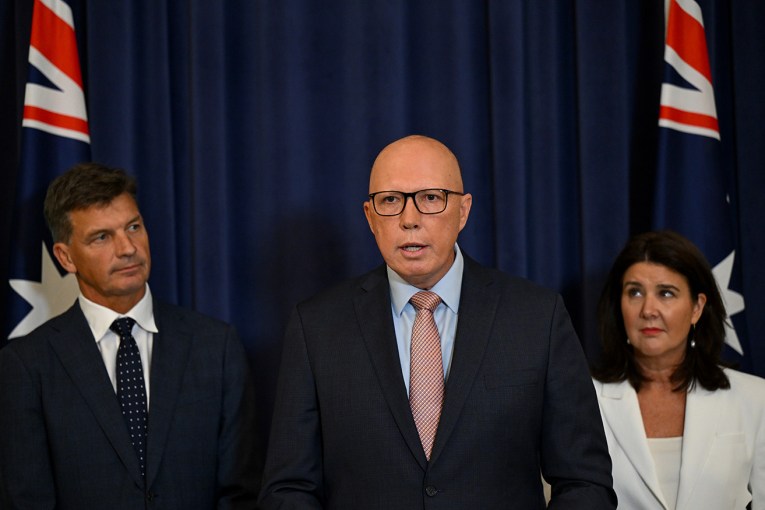If the RBA were a company, the governor would be out of a job


The RBA directors can’t sack the governor – they can only whinge and grizzle, writes Alan Kohler. Photo: TND
The Treasurer should take one further step in his response to the RBA review, even though this step is not in the recommendations – let the board appoint the governor.
And if he can’t come at that, which would be understandable – even though he’s going to make the RBA completely independent for the first time – then have the new Monetary Policy Board, not Treasury, draw up the short list of candidates and give them the power to sack the governor, or at least recommend his or her sacking.
What screams out in the review is that if the RBA were a company, the board would have and should have sacked Philip Lowe long ago. But they couldn’t; they knew it and he knew it.
The result is that the governor can ride roughshod over the board, with greatest respect and courtesy of course, but also with impunity, and apparently Philip Lowe did so.
One act alone, contained in a paragraph on page 47 of the review, was sackable. It came at that moment in October 2020, when the RBA, having cut the cash rate to 0.1 per cent, introduced what’s called ‘calendar-based guidance’ by saying that interest rates were not expected to go up for three years.
The panel says: “The Reserve Bank board did not receive any written briefings proposing calendar-based forward guidance before it was introduced by the governor in a speech in mid-October 2020.”
In other words, one of the most consequential monetary policy statements ever made by the RBA – for the economy, Australians’ lives and the reputation of the bank – was simply announced in a speech by the governor without telling the board.
The mushroom treatment
But that’s just one of a staggering number of times, according to the review, that the board was kept in the dark, either because they weren’t told or didn’t ask.
In his press conference last week, Philip Lowe said that part of the review “didn’t resonate with me. The idea that the board members sit there meekly and accept the recommendations that I put to them is very far from the reality that I have lived”.
So unless the review panel has published lies, or the governor is deluded, he must be saying that the board members did complain, and make life difficult for him, and he ignored them.
A few quotes for the review:
“Between 2016 and 2019, the Reserve Bank board never took a decision that went against the recommendation of the RBA executive.”
“The Reserve Bank board was not provided with, and on the available evidence did not demand, enough information in advance to fully debate and challenge the key design choices for the tools proposed by the RBA executive.”
“ …the review’s assessment is that the Reserve Bank board did not receive or request sufficient material to support a robust debate…”
“There is evidence that the Reserve Bank board is not always fully involved in decisions.”
“The Reserve Bank board did not have the opportunity to contribute to what was a significant policy decision that they were responsible for.”
“… there were significant gaps in the information available to the Reserve Bank board, and the review is unaware of any board requests for information on this topic.”
“…papers provided to the Reserve Bank board throughout 2021 contained little discussion of the risks posed by non-wage sources of inflation.”
And so on … there are plenty more like that.
So it sure looks like the board sat there meekly and munched the kibble they were fed, although of course neither the governor nor the board have acknowledged that.
A telling silence
And you would expect them all to deny it, vehemently, which the governor is doing, while the board, as usual, keeps mum – which, by the way, is something the review panel wants to stop. It is recommending that the directors should also get to make speeches.
But whatever has been going on in the board meetings, or rather has not been going on, the fact is that the directors can’t sack the governor and so they are ultimately powerless. They can only whinge and grizzle, and judging by what Philip Lowe said about them not being meek, that’s probably what they did.
Central bank governors are always appointed by the government of the day, and that is unlikely to change. But perhaps the power imbalance could be addressed by allowing the board to recommend the governor be removed, with the government required to have good reasons for refusing.
The panel is also pretty scathing about the RBA’s communications efforts, because the “communications function is insufficiently positioned in the organisational structure to provide influential strategic communications advice”. Read that as saying the PR folks are buried and ignored.
In other central banks, the communications director reports directly to the governor (Bank of England), or the deputy governor (Bank of Canada) because communication is an important function of any central bank. At the RBA it’s within the secretary’s department and reports to a manager.
And there should be more press conferences, the panel says, not just when the RBA has something to say, which is that the current practice, but because “observers may have questions to ask at other times”.
Shifting emphasis and goals
One of the more important outcomes of the review could end up being a new focus on the RBA’s objectives, which have been unchanged since 1959, when Mr Squiggle first appeared on TV (which is probably unconnected).
The objectives are:
- The stability of the currency of Australia
- The maintenance of full employment in Australia; and
- The economic prosperity and welfare of the people of Australia.
The panel wants the third one to be an “overall purpose of the institution”, and presumably, therefore, not one of the objectives, and it wants the other two to have equal weight. Not only that, there should be a transparent definition of ‘full employment’.
That could make a difference to the level of interest rates, unlike the other recommendations of the panel, which will just make the RBA better run and monetary policy less of a dog’s breakfast.
Alan Kohler is founder of Eureka Report and finance presenter on ABC news. He writes twice a week for The New Daily.








